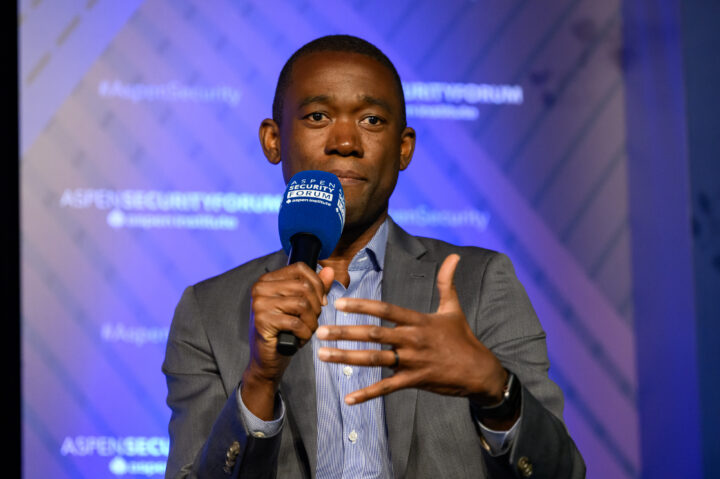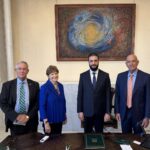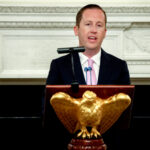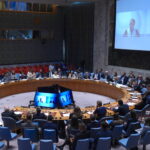Wally Adeyemo said that failing to properly invest in infrastructure in Gaza will empower extremist groups

Aspen Security Forum
Former Deputy Treasury Secretary Wally Adeyemo speaks at the Aspen Security Forum on July 16, 2025.
ASPEN, Colo. — Former Deputy Treasury Secretary Wally Adeyemo argued at the Aspen Security Forum on Wednesday that post-war reconstruction of Gaza will require new tools, methods and partners.
Adeyemo, who served in the Biden administration, said that a lasting solution will require a political settlement that provides the Palestinians with “some type of self-determination” and ensures Israeli security, but that some level of reconstruction and stability will need to precede both of those things. He said one estimate placed the cost of a reconstruction effort at $50 billion.
“We’re going to need to think about this differently with new tools, in new ways, because the thing that you want to do, not just in Gaza, but as we think about reconstruction differently, is we want it to be reconstruction that’s creating economic opportunity in the places that we are reconstructing,” Adeyemo said.
He said that will require a coalition, including new countries as well as private sector partners, because some of the actors involved in previous reconstruction efforts in Gaza have less of an appetite to spend money on the effort than they have in the past. International donors, led by Qatar, pledged upwards of $5 billion for the reconstruction of Gaza following the 2014 war with Israel.
Adeyemo added that it’s crucial that the reconstruction leads to a stable economy in which civilians aren’t reliant on extremist groups. He offered as an example that in prewar Gaza, obtaining fuel for an air conditioning unit required a relationship with Hamas and paying taxes to the terror group.
“Fundamentally, that was because of underinvestment in infrastructure,” Adeyemo said. “So as we think about infrastructure, I think the thing that you will want to think about in postconflict areas, Gaza or others, is, how do you do it in a way that not only restores basic infrastructure and basic equipment, but actually thinks about long term economic development in these areas?”






























































